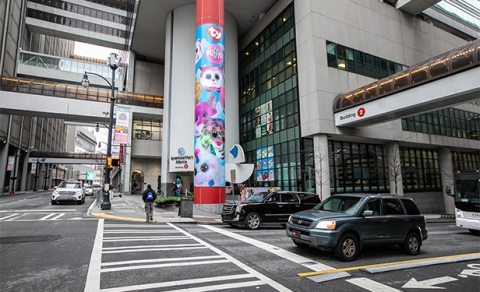Atlanta Spring Market Overtakes Pre-Pandemic Attendance Totals

It was Christmas in March for Mary Liz Curtain, co-owner of the distinctive Leon & Lulu marketplace in Clawson, Michigan. She walked around AmericasMart in Atlanta confidently, safely and productively during its Spring Market, held March 1-5.
“I will do my Christmas shopping in March going forward,” Curtain proclaimed after a triumphant return to the Markets after a 14-month absence.
Designer Nellie Howard Ossi of Jacksonville, Florida, one-upped that review with this Instagram post: “We came, we saw, we bought!”
If this sounds like comments you’d expect to in a normal, non-pandemic year, it should. As the country marks the one-year anniversary of COVID-19’s stranglehold on daily life, IMC’s Spring Market was a clear sign that recovery is coming, and perhaps faster than we think.
The successful market marks a new milestone in IMC’s post-COVID-19 recovery: more than 90,000 attendees safely served, and 13 markets presented across its Atlanta, High Point and Las Vegas campuses during the pandemic. At the Spring event, there was a 34% increase over last year’s show, and more notably, a 7% bump from the 2019 pre-COVID iteration.
“It’s incredibly poignant to mark one year of adapted markets with a return to better-than-pre-pandemic levels of traffic,” said IMC CEO Bob Maricich in a statement. “It shows how far we have come.”
Early reports suggest that the bulk of attendees reside in the Southeastern United States and had not shopped at AmericasMart during the pandemic. But a combination of new confidence stemming from vaccine distribution, protocols projecting an aura of safety and likely some old-fashioned COVID-fatigue were enough to turn the tide on decreased in-person attendance.
 The show looked ahead to better days, incorporating holiday items and displays at what is usually a scaled down event held between the larger Winter and Summer Markets. Maricich took note of this development, and predicted it could be a trend for the future. The Spring Market success “indicates the increased necessity of smaller shoulder markets as an important complement to the larger winter and summer markets during recovery and beyond.”
The show looked ahead to better days, incorporating holiday items and displays at what is usually a scaled down event held between the larger Winter and Summer Markets. Maricich took note of this development, and predicted it could be a trend for the future. The Spring Market success “indicates the increased necessity of smaller shoulder markets as an important complement to the larger winter and summer markets during recovery and beyond.”
About 1,000 home and gift show rooms were open for business, many of which cited robust orders for what they hope will be a busy year.
“Spring Market business was double that of last year,” said Fred Rosenkampff, CEO of The Link Companies. “We saw our first key account of the year here.”
To spark a greater interest in the Spring Market, IMC tapped designers Michel Smith Boyd, Haneen Matt and Kevin O’Gara and influencer Pamelyn Rocco of House of Bashery to serve as ambassadors/influencers by sharing favorite products, displays and experiences via Instagram.
IMC credits the addition of a JuniperMarket ecommerce marketplace preview and the social media build for a pre-registration tally close to 10,000. This year’s attendance matched 2020’s total during the market’s opening day. By the final day, an outcome few would have predicted materialized: Numbers exceeding 2019’s event.
“We’ve seen a hunger for new product this market,” said Katrena Griggs, principal of Curated Home Brands and showroom manager for Global Views. “We saw buyers from all regions — not just the Southeast — and they are assessing which markets to attend as more options are becoming available. We are happy they see the Atlanta Spring Market as a viable show.”
Don’t miss any event-related news: Sign up for our weekly e-newsletter HERE and engage with us on Twitter, Facebook, LinkedIn and Instagram!


Add new comment